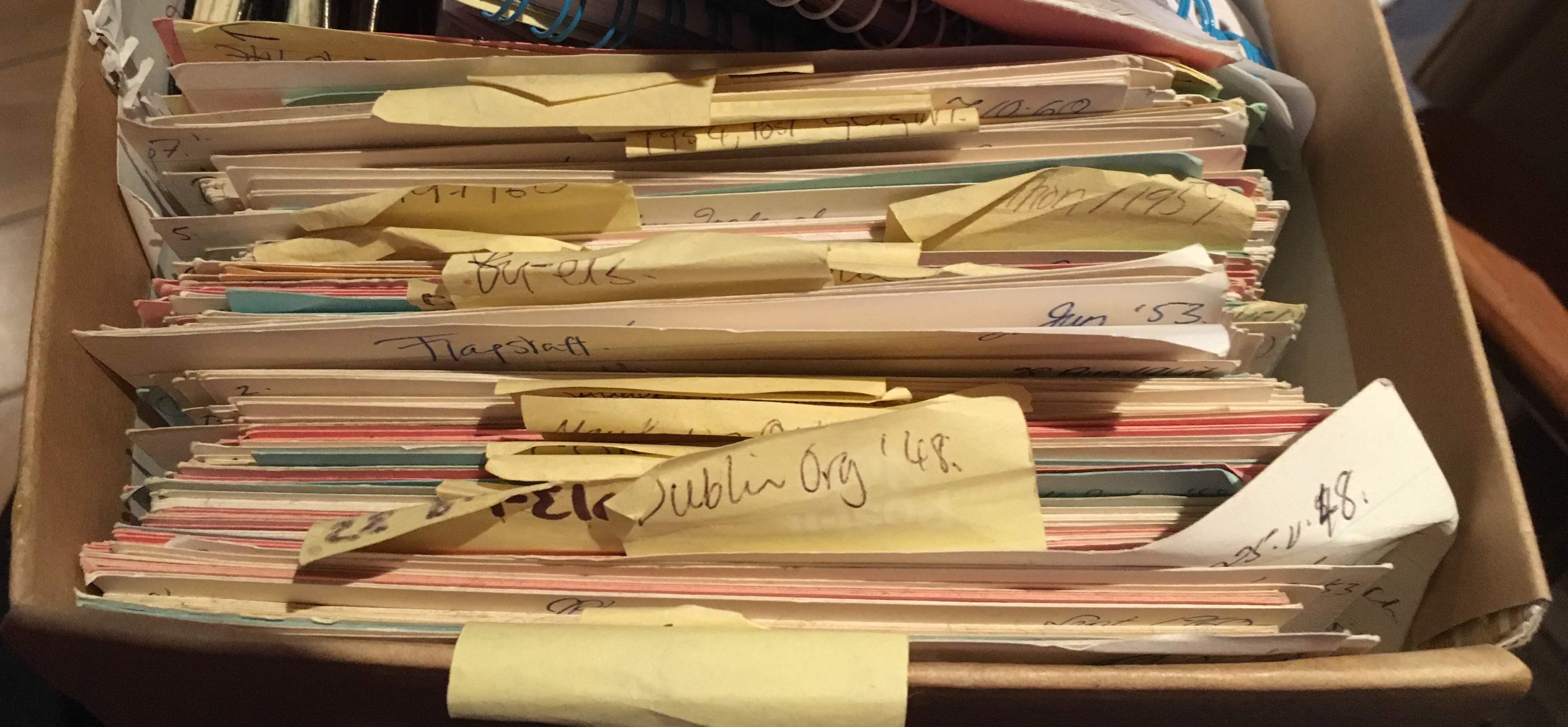Probably like a lot of people, around new year, I am in the habit of doing a tidy. Ideally, I do it before 1 January, but sometimes it takes longer, and a lot of that is because of reading. A certain amount of the annual tidy involves filing or shredding bills, receipts, prescriptions and the usual detritus of daily life that never quite gets put away, but much of it is the things that I meant to read but never got around to, the paper equivalent of ten thousand tabs open on a browser. The annual purge always makes me feel better – lighter and less encumbered – and if I don’t manage to do it, I carry everything over for another year and I feel inadequate, or in more dramatic moments, wholly useless. There were several years where my kitchen table, which was always a key part of this process, remained unexcavated, every inch of which was piled high in papers and books for a book I was writing. Thinking back, the only reason the table was ever cleared in the end was that my landlord was selling up and I had to move house, and eviction proved successful where all other inducements had not.
This year, Marie Kondo is helping to spur my efforts. I know people who have found her books very useful, but I haven’t read her, and rely on a vague idea of her method and her new show on Netflix. I have filled a few bags for the bin and the charity shop with my rather half-assed use of the method. My clothes are neatly folded and filed in drawers. I’ll be honest, few items spark joy, but I can hold a pair of decent 60 denier opaque tights and be grateful that they have toes and no ladders enough to be able to wear them out of the house. Perhaps the joyless nature of hosiery is factored into in the books but there’s always the William Morris advice about keeping things that are useful, so all goes well, except for one thing.
It’s the books. Or rather, it’s the books and the paper. So much fucking paper. It’s overwhelming and I feel my chest tighten thinking of it. I started my doctoral studies over 20 years ago. Few people were using laptops and there was a lecturer in my department who recommended what he called the shoe-box method, where the researcher would take notes on index cards and keep them in a shoe box so that they could be filed according to topic. It was terrible advice but I did this and I still have the cards. I completed the PhD, I wrote a book which was partly based on the research but I can’t get rid of the index cards, or, indeed, the other notes. The same applies to everything I’ve done since. Every article, chapter, book, you name it, that I have written, I still have the notes. Mostly they’re in folders, some scrawled notes in pencil from various archives and research libraries and then, as time went on, printed up pages of notes that I typed up on laptops. There are also photocopies, print outs of photographs I took in archives, and various other odds and sods. There are scores of reams of notes for everything I ever wrote and I can’t move for them. There are also scores of reams of notes for everything I never wrote. All the articles I planned to write but I never found the time; the books that almost were (but thankfully were not), and the other books that have not yet been. There is just so much stuff. I can’t throw it out, although I desperately want to. It doesn’t spark joy, it makes me anxious and angst-ridden but it is the result of countless hours spent over years of sitting in various libraries and archives, including one archive which had an atmospheric thermometer permanently at “danger of hypothermia”. I can’t get rid of the material I’ve used but neither can I dispose of the work I have neglected to write, my books of omission.
It’s a problem. It’s a problem lots of people have. Of course, some people are better organised, and others are better able to knock out stuff and move on to the next thing. There are also people who find that after years of collecting material on a subject, that they can decide that they’ll never get around to it and put crates of papers in the green bin, but I think that must happen once in a blue moon. I’m sure it’s hugely cathartic but I couldn’t, or at least, I can’t right now, but I am reluctant to be fatalistic. As the man said, what is to be done? It occurred to me that there could be a support group for the similarly afflicted. It might work like a study group but really be more like a group therapy session where each week, scholars would bring their research notes for a long shelved project and discuss them, and at the end, they would have to commit to writing something – even only a thousand words – or shred them in a ceremony in front of their peers. There’s also the more generous approach of giving the research to someone else who might use them. Keeping material in circulation is admirable but not everyone is capable of committing to intellectual surrogacy. But if you sit on something long enough it doesn’t matter because someone else will find it themselves anyway, and your generosity will serves no purpose other than to your self-satisfaction.
Today is the feast of the epiphany and I suppose I wondered if I put some of this in writing would I reach my own. I haven’t, of course, but if the files and boxes are still where they were this morning, they are at least stacked a little straighter.
